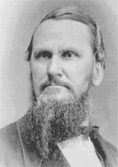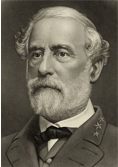Confederate Truths: Documents of the Confederate & Neo-Confederate Tradition from 1787 to the Present.








"Confederate Veteran" writer expounds on racist theories including inferior races of white men.
Confederate Veteran, Vol. 29 No. 4, April 1921, pp.142-3. This article leads to the discussion of the books of modern racists such as Madison Grant and Lathrop Stoddard.
After defending slavery, the author explains how the United States is being undermined by immigrants who though they are white are not Anglo-Saxon. Latin Americans are characterized as "a degenerate race of half-breeds."
AS TO SLAVERY.
BY DR. JAMES H. M'NEILLY, NASHVILLE, TENN.
Some years ago I published a little book setting forth what the Southern Churches had done for the spiritual interests of the slaves in the years before the War between the States. Copies were sent to a number of the Northern religious papers. As far as I could find the booklet was ignored except by one, a Chicago paper, which spoke of it contemptuously as a "defense of slavery written by a Rebel soldier." Recently I received a letter, courteous yet critical, from Dr. Albert Bushnell Hart, Professor of History in Harvard University, who seems to take the same view of the little book as an apology for slavery. His letter is given here:
"Your pamphlet on religion and slavery, published in 1911, has recently come into my hands and contains many interesting matters about the status of the South in your experience. This question of slavery touches me personally, inasmuch as my great-grandfather, Judge George Hornell, founder of the city of Hornell, N. Y., was a slaveholder. Futhermore, I have spent a great deal of time in the Southern States (nearly a year altogether), have written a book, ‘The Southern South,' on the present Southern question, and another, ‘Slavery and Abolition,' on conditions of slavery down to the Civil War, and for nearly forty years I have read and considered this question.
"As regards my ancestor, the slaveholder, I am sorry to say that the family tradition is that he was not a good slave-holder. I regret it, but I take no responsibility for his errors or delinquencies. I thank God that there is no slavery any longer in Hornell or in New York or in the United States, and I am amazed at the disposition of some of the most intelligent Southern people nowadays to go back and defend an indefensible institution.
"When you say, ‘I am free to confess that I do not believe emancipation was a blessing to master and slave,' you are practically saying that slavery should be restored.
"The great indictment against slavery was summed up in the antislavery statement that ‘no man is good enough to own another.' Slavery was not all bad; there were good and considerate slave owners, but there were cruel and murderous slave owners. You do not need to go to ‘Uncle Tom' for proofs, which are to be found in Southern newspapers and the records made by impartial travelers and visitors. Slavery kept the South poor, kept part of it ignorant, kept it out of the track of advancing civilization. Slavery was an economic loss, as is shown by the present high material prosperity of the South. Nobody can deny that there were a multitude of cases of cruelty and crime against the slave, and to my mind the most shocking thing about the slavery of two generations ago was that not one single State between 1833 and 1861 made enactments for the correction of manifest and public abuses, such as the selling of little children out of their mothers' arms; not a single Southern State took or dared take any steps toward the education of the slave.
"Why, I should think the Southern people to-day would rejoice with great rejoicing that they were free from the curse, and I do not see that your ancestors are any more entitled than my ancestors to the sympathy of this generation. They sinned against the light, they struggled against the advancement of the world, and a great many of them, if alive now, would rejoice that their grandchildren are released from the responsibility."
Let me say at once that no opinion expressed by a Southerner as to the evils of emancipation as it was effected implies any desire to restore the institution of slavery. It is one of the ironies of history that the bitterest critics of Southern domestic slavery, holding it up to scorn as "the sum of all villanies," should be the men and women whose fathers forced the unwilling colonies to receive the brutal African savages, torn by these same fathers from their own land and brought to this country through the horrors of "the middle passage." These same descendants now gloat over the fact that at fearful cost of blood and treasure they succeeded in "knocking the shackles from the slave." And while Exeter Hall, in London, and Fanueil Hall, in Boston, were ringing with denunciations of Southern slaveholders, there was in the mines of England and in the iron and steel industries of the North a system of cruelty and oppression harsher than the Southern slaves ever endured.
It is said that the whole question is settled, and any discussion of it is only academic. Let me quote a sentence or two from the ablest Southern writers on moral philosophy, especially as to its social and civc aspects: "Among the questions of civic rights and duties that of the recent domestic slavery in the United States holds a very interesting place. It is not debated with any view to restoring that form of labor; no intelligent man among us expects or desires this. But we should understand it for three reasons. The first is that the disputes concerning the relation of bondage, whether it is righteous or intrinsically unjust, involve and illustrate the most vital principles of morals and legislation. The second is that the assertion of its intrinsic injustice, now so commonly made, involves the credit of the Christian Scriptures, and the discrepancy disclosed has become the occasion of widespread and perilous skepticism. Unless we are willing to give up the authority of the Bible as God's word, it is unspeakably important that this supposed discrepancy shall have a better adjustment than it has yet received. Nothing is more certain than that in its essence human bondage, which is the involuntary subjection of an inferior part of the human race to the will of superiors, has not been abolished and never will be until the millennium; but the relationship will reappear in civilized society under many new names and forms, often less beneficent than the one lately overthrown. But African bondage under that name belongs to the past, not-withstanding our educated young men cannot but feel a living interest in the question whether their honored fathers lived and died in a criminal relation. And this is the third reason which demands this discussion."
The propaganda of Germany from 1870 to 1914 against all other nations in the interests of German military supremacy was not more persistent, unscrupulous, underhanded, and malignant than the abolition propaganda against the South and her domestic institutions. And finally they succeeded in organizing a great political party whose bond of union was and still is opposition to the South and her civic and political ideals. That party got control of the government, and to free the slaves brought on the terrible war which desolated the Southern States.
It is characteristic of all merely man-directed reforms that they tend to fanaticism and excess, and even when successful it requires two or three generations to correct the abuses of the reformation. There are two things to be considered in every true reformation, the principle that is to be maintained and applied and the condition or circumstances that limit or modify the carrying out of the principle. The abolition leaders assumed that their principles were just and true, and they determined to force them on the country at any cost, utterly regardless of the rights of slaveholders and of the fitness of the slaves for freedom. They demanded an anti-slavery God, an antislavery Bible, an antislavery Constitution, and they denounced the Constitution of the republic as "a covenant with death and a league with hell."
There were two grievous mistakes they made. They assumed that they knew about conditions in the South, that the negroes were groaning under hard bondage, and that the majority of slaveholders were cruel and oppressive, while the facts were that the slaves were the happiest working class in the world, and the masters as a class were high-toned, upright, kindly Christian gentlemen. Such assertions, as in Dr. Hart's letter, that the laws of the Southern States gave no rights nor protection to the slaves are not true, and the oft-repeated charge that negro "children were sold out of their mothers' arms" is akin to that old charge that we Presbyterians believe there are "infants in hell not a span long." Of course some hard-headed old Puritan might have denied the salvation of infants, and some brutal master may have separated a baby from its mother, but that was the exception.
Professor Hart claims to know the conditions of the South better than I do because he spent nearly a year in the South and wrote two books on the subject. Now one thing, I think, is generally true: when a hostile critic investigates a person, a people, or a condition, he finds what he set out to find, as is illustrated in the partisan investigations now going on as to the conduct of the great World War. And one who knows the negro character knows that a sympathetic investigator can get a gruesome statement of the sufferings of negroes under hard taskmasters. The abolitionist made the negro a hero in his own eyes. I read "Uncle Tom's Cabin" when it was published. Living as I did in Tennessee, I supposed the Southern plantations rang with the piteous cries of slaves under the lash, forced to work beyond their strength. Afterwards I had a Church of fifty white members who owned four or five thousand slaves. I preached on the plantations three nights every week and was all over them by day, and I never saw a negro whipped or unduly worked.
No doubt when the negroes were first introduced into this country they were treated with severity. They were unaccustomed to regular work, and it required strong discipline to train them. But as they became trained and became identified with their masters' families, this severity was mitigated and a far kinder relation established, which recognized the negro's right to bodily care and also to spiritual training.
The whole question of African slavery presented difficulties to every conscientious Southerner. How was it best to deal with an alien race, inferior in mental and moral character, mere children, unable to take care of themselves, with the instincts of savagery lingering in their very nature? Domestic slavery seemed to be the answer that would give security to all and effectiveness to the labor of the slaves. It is claimed that the results of emancipation show that our fears were groundless, and that emancipation has relieved the white man of a burden and has given the negro opportunity to develop his manhood as a free citizen. Surely these optimists are blind to the portentous shadow of race war that hangs over the homes of those who live near large negro populations. The growing demand for social equality, the antagonism of the working classes, the frequent outrages, unknown in the days of slavery, which bring on the terrible lawlessness of lynchings stirred by race hatred—all these things suggest that the race question is not settled. And the return of the negro soldiers from the World War is emphasizing the demand for social as well as civic equality.
Recently I have read with deep interest two books which treat of history not from the point of view of language or nationality, but of race as the one unchangable thing that underlies and controls the activities of men. Madison Grant's book is on "The Rising Tide of Color"; the other book, by Prof. Lathrop Stoddard, is entitled "The Passing of a Great Race." The great races are distinguished by color—yellow, brown, red, and white. Hitherto the white race, especially represented by the Anglo-Saxon, has been dominant wherever present with other colors. But now these colored races are beginning to rise against the white. Japan is leading, but it is also showing itself in China, India, the Philippines, in Mexico. The "Passing of a Great Race" notes that the Anglo-Saxon is giving place to weaker and inferior types of white men. In the United States the Anglo-Saxon is being displaced by a horde of foreigners, utterly ignorant of and out of sympathy with our ideals. The abolition propaganda must logically admit this horde and give it rights of citizenship. It is, after all, a part of that radical socialism which says that no man has a right to anything that his neighbor can't have, even if that neighbor will use his right to destroy the government.
It seems to me that when races so widely different as those separated by color have to live together under the same government and outward conditions then there are only three possible relationships: First, equality with intermarriage and a mongrel race; second, antagonism and constant struggle for superiority; third, subjection of the weaker race, some form of servitude. Now it happens that all three of these plans have been tried. The first is illustrated in the intermarriage of the Spaniard with the Indians or negroes, of the French with the Indians. The result was a degenerate race of half-breeds. In the second case the red Indian in our own land resisted and fought the white man, and the red man is practically exterminated. The third case was the African associated with the white man in the relation of slavery. The result was a race happy, content, and growing in numbers and character.
While there were instances of cruelty by masters to their slaves, these were the exceptions, condemned by public opinion; while the regular negro trader was socially ostracized. The revelations of the divorce courts of the present show a cruelty and brutality in the marriage relation beyond anything practiced in slavery. And the same reforming spirit that was exercised by the abolitionist is now manifesting itself in an organized attempt to abolish marriage. As to the material prosperity that has come to the South, as we note the strife of classes, the conflicts of capital and labor, the army of tramps that infest our land, a class an known in the days of slavery, we are apt to quote:
"Ill fares the land to hastening ills a prey,
Where wealth accumulates and men decay."